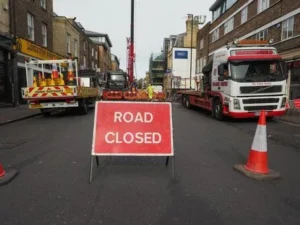A new report to Lancashire County Council’s cabinet reveals that roads in Lancashire are gradually improving thanks to a consistent approach to investment and maintenance.
However, the progress update on the council’s long-term strategy for highways maintenance also outlines that a fresh approach is needed in some areas to make limited funding stretch further, said the council.
The aim of Lancashire County Council’s Transport Asset Management Plan (TAMP) is to maintain and improve the overall state of infrastructure such as roads, bridges and streetlights by using survey data to target repairs at the right time, before more expensive and time-consuming work is needed.
This approach, which can be summed up as ‘prevention is better than cure’, is recommended by the Department for Transport to help councils make their maintenance budgets go further.
The report recently considered by cabinet sets out how the council is performing against its own targets for maintaining highways infrastructure such as roads, bridges, and streetlights.
It shows that good progress is being made in maintaining the county’s A, B and C road networks – the focus of the first 5-year phase of the plan – and that extra investment in recent years means that less funding should be needed to keep them in good condition in the future.
The TAMP is now in its second 5-year phase, with the current focus being on improving the condition of smaller residential roads. However recent survey work to gain better information about the condition of these roads has revealed that there is a substantial maintenance backlog.
The report also outlines that the council has revised its approach to maintaining traffic signals with old equipment being made to last longer and only obsolete components being replaced. The council is also investigating alternative strategies for maintaining streetlights due to limited funding to replace older columns.
County Councillor Charlie Edwards, cabinet member for highways and transport, said: “It’s great to see that consistent investment in our most important A, B and C roads continues to make a significant difference, with far fewer potholes and other issues now being found on these roads.
“Recent performance data also shows that we’re responding to problems such as potholes in a timely manner. This swift action represents good progress, and I hope will be reflected in the next annual survey of Lancashire’s roads.
“This report shows that our long-term plan to improve the county’s transport infrastructure is working, and confirms that ‘prevention is better than cure’, rather than always focusing on replacing the worst first, is the right strategy over time. It also means we receive more incentive funding from the Department for Transport as we can show we provide good value for money.”
Monitoring of the council’s performance on fixing potholes shows the rate of repairs has improved, with more being repaired within 20 days of being reported last winter than the same period the previous year. The latest available data shows that 99% of potholes are being repaired within 20 days of being reported.
County Councillor Edwards added: “However, we still face some big challenges and the survey of the unclassified residential road network shows there is a substantial backlog. This is the focus of the second phase of our strategy and means that we are currently investing more in these roads, but the scale of the task as shown by our recent surveys is even bigger than we could have expected.
“I want as much as anyone else for our residential roads to look neat and tidy, and we will continue to invest as much as we can in them, but improving their condition will take time with the current level of funding we receive, added to the inflationary pressures on the materials we use to maintain our roads.
“Replacing street lighting columns and traffic signal equipment also presents a challenge as the rate at which we can afford to replace them means their overall condition is gradually declining.
“We are looking at new approaches to traffic signal maintenance focussing on replacing the obsolete components, rather the renewing the whole junction as well as alternative strategies for street lighting column replacement for the final phase of the TAMP.
“Having reliable condition data to inform our investment decisions is vital, and this report will help us adjust our future plans accordingly.”
























